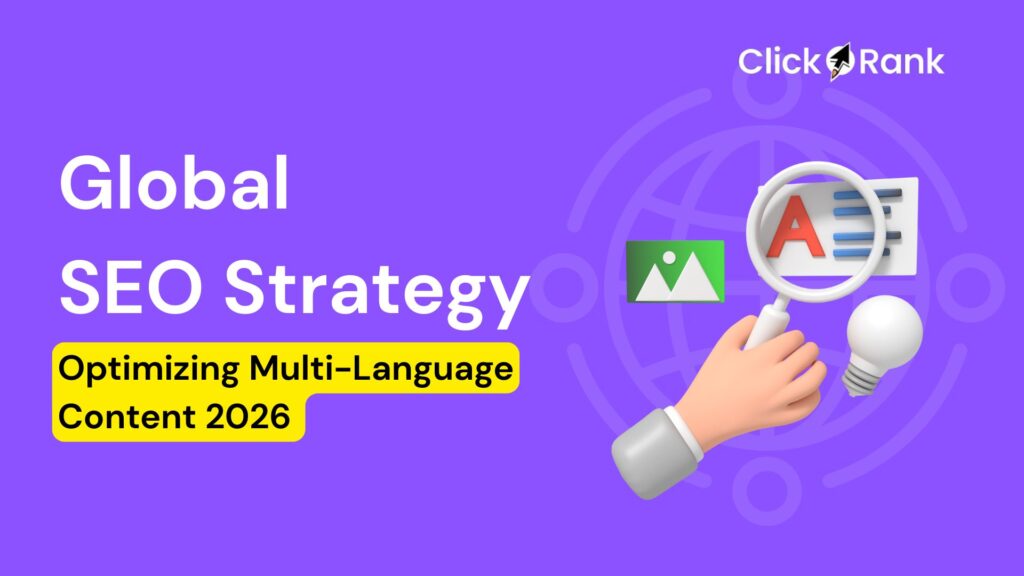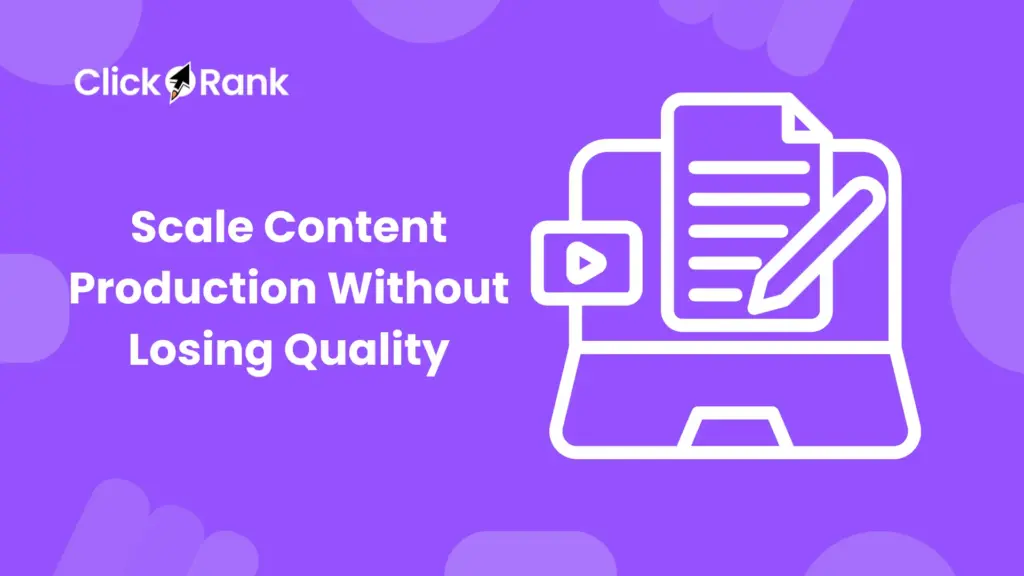In today’s fast-evolving digital world, the fusion of Artificial Intelligence with Search Engine Optimization has sparked a new era for marketers and businesses. AI in SEO is no longer a futuristic concept but a present-day reality reshaping how websites rank, how content is created, and how users find answers online. This comprehensive guide explores every angle of this transformation, showing how AI-driven techniques and tools elevate SEO strategies and how platforms like ClickRank harness AI to empower businesses, especially in local SEO.
What is AI in SEO?
At its core, AI in SEO refers to the use of artificial intelligence technologies such as machine learning, natural language processing, and predictive analytics to improve and automate various SEO tasks. These technologies analyze massive data sets faster and more accurately than humans, enabling smarter keyword research, content optimization, technical audits, and personalized user experiences. AI helps SEO professionals shift from guesswork and manual processes to data-backed strategies.
History and Evolution of AI in SEO
The journey of AI in SEO began with basic algorithm updates that incorporated machine learning to better interpret search intent and content quality. Google’s RankBrain was a landmark, leveraging AI to improve query understanding. Over the years, AI tools expanded beyond ranking algorithms to empower marketers with automated keyword suggestions, content generation using models like GPT, and sophisticated analytics.
Why AI Matters for Modern SEO?
SEO today demands scale and precision. With billions of web pages and continuous search algorithm updates, human-only efforts become insufficient. AI excels at:
- Processing huge datasets to spot trends and opportunities.
- Automating repetitive Advanced SEO tasks like audits and reporting.
- Enhancing personalization by understanding user behavior.
- Improving accuracy in keyword targeting and content relevance.
Harnessing AI allows businesses to stay competitive by making faster, smarter SEO decisions.
What Are The Key Applications of AI in SEO?
AI-Powered Keyword Research
Traditional keyword research involved manual brainstorming and basic tools. AI-driven platforms analyze search volumes, competitor strategies, and user intent to uncover high-value keywords — including long-tail and emerging terms — faster and with higher accuracy.
Automated Content Creation and Optimization
Generative AI, particularly GPT SEO models, can draft initial content outlines or full articles optimized for SEO. AI tools also suggest improvements to existing content based on readability, keyword placement, and user engagement metrics, making content creation more efficient.
Voice Search and Natural Language Processing (NLP)
With the rise of smart assistants, voice search optimization is crucial. AI-powered NLP helps SEO professionals understand conversational queries and adapt content accordingly, improving rankings in voice search results.
AI for Technical SEO Audits
Technical SEO involves numerous checks like site speed, crawl errors, broken links, and schema markup. AI automates these audits, quickly detecting issues and prioritizing fixes based on impact — a core feature in tools like ClickRank.
Predictive Analytics and SEO Forecasting
AI predicts future keyword trends, seasonal fluctuations, and ranking movements, helping marketers plan content calendars and link-building campaigns proactively.
Personalization and User Experience Enhancement
AI personalizes web content and recommendations based on visitor behavior, improving engagement metrics — which directly impact SEO rankings.
How AI Improves Content Strategy?
AI improves content strategy by making the process faster, more data-driven, and more targeted, covering everything from research to performance tracking. Here’s a breakdown of how it helps:
1. Smarter Audience Insights
- AI tools analyze huge volumes of behavioral data to reveal what your audience searches for, when, and why.
- It can identify trending topics, sentiment patterns, and even predict future interests.
- Example: AI sentiment analysis can tell you if people are feeling positively or negatively about an industry topic, guiding your tone.
2. Data-Driven Topic & Keyword Research
- AI SEO tools (like SEMrush’s AI assistants or Ahrefs with machine learning) find low-competition, high-intent keywords faster than manual research.
- They can detect related keyword clusters for content hubs rather than single posts, improving topical authority.
3. Content Personalization
- AI can adapt headlines, CTAs, and recommendations for different audience segments in real time.
- E-commerce sites use AI to serve location-specific product content or adjust the tone based on user profile.
4. Efficiency in Content Creation
- Natural Language Processing (NLP) models generate drafts, outlines, and summaries in seconds.
- AI writing assistants help maintain brand voice consistency while speeding up production.
- This frees up human writers to focus on storytelling and originality.
5. Optimization for Search & Engagement
- AI tools like Clearscope or SurferSEO suggest semantic keywords, content structure improvements, and readability tweaks.
- They also analyze competitors’ content to uncover gaps you can fill.
6. Predictive Performance Analysis
- AI models forecast how content will perform before you publish, based on historical patterns and engagement metrics.
- You can simulate A/B test results without running full campaigns.
7. Continuous Improvement via Automation
- AI-powered analytics tools track real-time performance and suggest updates for underperforming content.
- Automated alerts can notify you when competitors publish on similar topics, so you can react faster.
AI doesn’t just make content creation faster — it makes it smarter, more relevant, and more profitable by helping brands know their audience deeply, act on real data, and adapt content instantly.
Generative AI for Content Ideas
AI tools analyze competitor content and trending topics to suggest relevant ideas, ensuring your content strategy stays fresh and targeted.
AI-Based Content Optimization Tools
Platforms evaluate your content’s SEO health, keyword density, semantic relevance, and structure — providing actionable insights to boost performance.
Detecting Content Gaps with AI
By comparing your content to competitors and search intent, AI identifies missing topics or unanswered questions, guiding strategic content expansion.
Automating Content Updates and Refreshes
AI schedules and suggests timely updates to keep content accurate and relevant, essential for maintaining high search rankings.
How AI Impacting On-Page SEO?
AI is revolutionizing on-page SEO by automating tasks, enhancing content quality, and providing data-driven insights. AI-powered tools can streamline keyword research, optimize meta tags, and improve site structure, ultimately leading to better search engine rankings and user experience.
Optimizing Meta Titles and Descriptions with AI
AI generates meta titles and descriptions that improve click-through rates by incorporating primary keywords and engaging language without keyword stuffing.
AI-Driven Schema Markup and Structured Data
Implementing schema manually can be complex. AI tools automate this, helping search engines better understand your pages and display rich snippets.
Enhancing Internal Linking Using AI
AI recommends contextual internal links that improve crawlability and distribute page authority, enhancing SEO performance.
Image and Video SEO Automation
AI automatically tags and optimizes multimedia content, boosting search visibility through image and video search features.
How AI Impacting Off-Page SEO?
AI is significantly impacting off-page SEO by enhancing its efficiency and effectiveness through automation, data-driven insights, and improved strategies. AI-powered tools help streamline link building, optimize social media strategies, and monitor brand reputation, ultimately boosting website authority and rankings.
AI for Link Building Opportunities
AI tools analyze competitor backlink profiles and identify authoritative, relevant link prospects faster than manual research.
Reputation Management and Sentiment Analysis
AI monitors brand mentions and sentiment across the web, alerting businesses to potential reputation issues or opportunities for engagement.
Social Media and AI-Driven SEO Signals
AI evaluates social engagement and trends to optimize social content that indirectly supports SEO through increased visibility and traffic.
How AI Tools Transforming SEO?
Overview of Leading AI SEO Tools (ClickRank, SEMrush, Ahrefs, etc.) and Several platforms incorporate AI to automate audits, keyword research, and content optimization. Each has unique strengths, with ClickRank focusing heavily on actionable, user-friendly AI insights and local SEO.
How ClickRank Uses AI to Simplify SEO?
ClickRank analyzes Google Search Console data and user behavior to detect real SEO issues and provides prioritized, one-click fixes — a huge time-saver for SEO teams.
AI-Powered Audit and Fix Recommendations, Rather than generic reports, ClickRank delivers actionable, impact-driven recommendations powered by AI, increasing efficiency and results.
What Is The Future Trends of AI in SEO?
- AI and Voice Search Expansion: Voice queries are growing rapidly, requiring SEO content to be more conversational — AI helps adapt strategies accordingly.
- Integration of AI with Visual and Video Search: AI-powered image and video recognition improve multimedia search rankings, an area expected to grow exponentially.
- Ethical Considerations in AI SEO: Transparency, avoiding biases, and respecting user privacy will shape ethical AI deployment in SEO.
- The Role of AI in Search Algorithm Updates: Google and others increasingly use AI internally, making understanding AI’s impact essential for SEO adaptation.
Challenges and Limitations of AI in SEO:
- Dependence on Data Quality: AI’s accuracy depends on the quality and volume of data it analyzes — garbage in, garbage out applies.
- Risk of Over-Automation: Relying solely on AI may overlook creative, strategic nuances best handled by humans.
- Balancing AI and Human Creativity: The best results come from combining AI efficiency with human insight and innovation.
Best Practices for Leveraging AI in SEO:
- Combining AI Tools with Human Oversight: Always review AI-generated recommendations with a human perspective to ensure quality and alignment.
- Continuous Learning and Adaptation: Stay updated with AI and SEO developments to refine strategies continuously.
- Ethical Use of AI in SEO: Commit to ethical standards, avoiding black hat tactics and respecting user experience.
AI in SEO is revolutionizing how websites are optimized, combining automation, deep analytics, and smarter content creation to deliver better results faster.
Integrating AI tools like ClickRank helps businesses — especially local ones — identify real problems and implement fixes quickly, giving them a competitive edge.
Discover the power of AI-driven SEO solutions today by visiting clickrank.ai. Run your free audit and start transforming your SEO strategy with intelligent automation and expert insights.
What is the impact of AI on traditional SEO practices?
AI automates and improves many tasks, but human strategy and creativity remain vital.
Can AI replace human SEO experts?
No, AI is a powerful tool that enhances human work but doesn’t replace strategic thinking.
How does ClickRank integrate AI to help SEO?
ClickRank uses AI to analyze real user data, detect issues, and suggest prioritized fixes with minimal effort.
Is AI SEO suitable for small businesses?
Absolutely. AI tools help small businesses compete by automating complex SEO tasks affordably.
What are the best AI SEO tools currently available?
Besides ClickRank, top tools include SEMrush, Ahrefs, Clearscope, Surfer SEO, and GPT-based content generators.

![7 Ways to Scale Content Teams with Real-Time SEO in 2026 2 7 Ways to Scale Content Teams with Real-Time SEO [2026]](https://www.clickrank.ai/wp-content/uploads/2025/12/7-Ways-to-Scale-Content-Teams-with-Real-Time-SEO-2026-1024x576.jpg)
